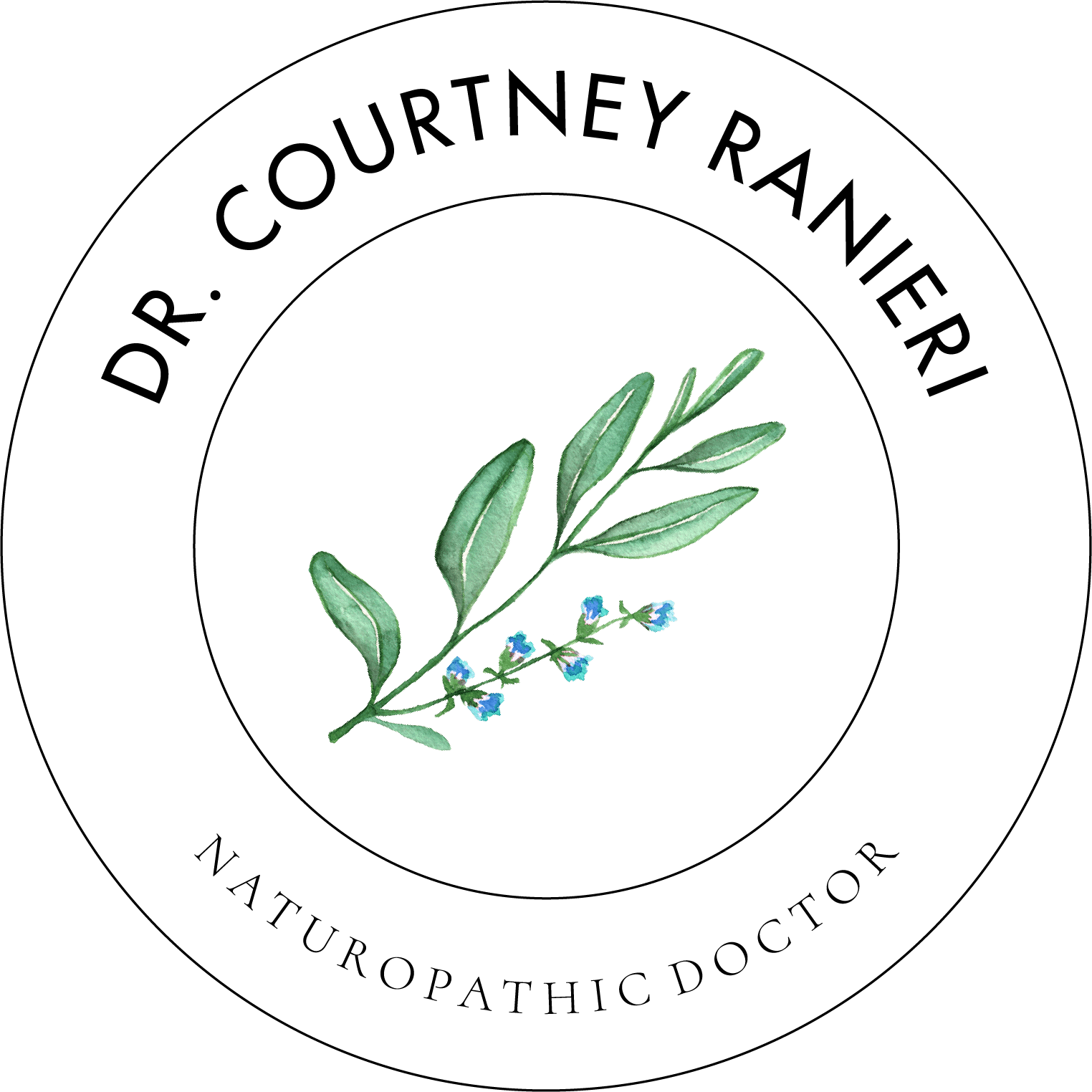All About The Pill: Nutrient Depletions, Synthetic Hormones + How to Stay Healthy While On and Coming Off
This is Part 1 of ‘The Pill Series’.
For over 50 years oral contraceptives, or ‘The Pill’, have been a standard prescription for women avoiding pregnancy – and for good reason. The Pill is almost 99% with perfect use. Many women find themselves on it at some point during their reproductive years. The Pill is in no way ‘evil’ and has been instrumental in the women’s liberation movement and furthering women’s sexual health. There have been many improvements in The Pill and even the dose of estrogen and progesterone in the pill today is significantly lower than it was when our mothers and grandmothers first used it.
It all comes down to being informed in your healthcare choices. Understanding how The Pill works, the benefits of its use, the short and long-term consequences is so important for making informed choices to protect your future health and fertility.
1// BACKGROUND INFO: NATURAL HORMONAL CYCLES/HORMONES
Estrogen is naturally produced in the ovaries (+ a small amount is made in fat cells from the conversion of testosterone into estrogen). Estrogen increases during the first half (aka the follicular phase) of your cycle, with a spike around ovulation. It is found in 3 forms in the body: Estrone, Estradiol and Estriol, and each have their own functions and actions. Estradiol is the most relevant in hormonal cycles as it is 80 times more active than Estriol.
Progesterone is produced by the matured follicle (called the corpus luteum) in the ovaries during the second half (aka the luteal phase) of your cycle and also from the placenta in pregnancy.
2// HOW DOES THE PILL WORK?
Most oral contraceptives prescribed today are combination pills. That means that they contain both synthetic estrogen andprogestin. In addition, most contraceptives are monophasic, meaning that the amount of hormone in each pill is the same and doesn’t change each week.
The Pill inhibits conception in a few different ways. Rising estrogen causes a luteinizing hormone surge which induces ovulation, however, while on the pill estrogen level stays consistent inhibiting ovulation. Progestin works in two ways to prevent pregnancy: by thickening cervical mucous and altering the uterine lining making implantation very difficult.
3// WHAT’S THE DEAL WITH SYNTHETIC HORMONES?
Oral contraceptives contain synthetic estrogen (in the form of ethinylestradiol) and synthetic progesterone called progestin (in the form of medroxyprogesterone, norgestrel, etonogestrel and levonorgestrel). These synthetic hormones are not identical and do not have the same action in the body as their natural counterparts.
Natural progesterone has a protective effect on the body. It helps to prevent breast cancer, maintain cardiovascular health and maintain a pregnancy. Synthetic progestins are known to have testosterone-like actions in the body which can lead to female-hair loss and acne. In addition, synthetic progestins may increase the risk of breast cancer.
It is well-documented that oral contraceptive use increases the risk for cardiovascular events such as venous thromboembolism (blood clot), myocardial infarction (heart attack), and stroke (Statistics Canada, 2011). Some studies have found that the risk of a blood clot is 2x greater in those taking The Pill than those who aren’t.
4// ‘PERIODS’ WHILE ON THE PILL
Natural menstruation occurs when estrogen and progesterone levels drop post-ovulation due to the released egg staying unfertilized. This causes the endometrial lining to break down and is excreted. While on The Pill, the ‘period’ you have actually a withdrawal bleed. As you are not ovulating, the bleed is due to the cessation of pills (on the week off) and not from the hormonal signals from a non-fertilized egg, as in a natural cycle.
5// THE GOOD NEWS: BENEFITS OF THE PILL
There are some definite benefits of taking The Pill. The Pill is very effective (almost 99% with perfect use) at preventing pregnancy – it’s main job! The Pill protects against endometrial carcinoma, can help with endometriosis, ovarian cysts, acne and regulating cycles. There is also decreased risk of Bacterial Vaginosis while on The Pill. The Pill is considered a reversible contraceptive, which means that it is not a permanent situation.
6// COMMON NUTRIENT DEPLETIONS
- Vitamin B6 – Vitamin B6 is a cofactor for a number of different enzymatic reactions in the body and is required for the synthesis of serotonin and norepinephrine. It is also required for red blood cell synthesis
- Vitamin B12 – Many studies have shown lower vitamin B levels in women who take oral contraceptives. All of these vitamins are extremely important, especially for women during their reproductive years. Vitamin B12 is imperative for neurological health and healthy red blood cells.
- Vitamin B2 (Folic Acid)– Vitamin B2 (folic acid) is required for healthy methylation and DNA synthesis. It is also required to help break down carbohydrates, fats and protein.
- Zinc– Zinc is an essential nutrient that can be may be depleted while on The Pill. Zinc is important for over 100 different reactions in the body. Decreased levels of zinc can weaken the immune system and make you more susceptible to illness.
- Magnesium– Magnesium is needed to make ATP biologically active (the only source of energy for cells). Crave dark chocolate? You could be deficient in magnesium. Decreased magnesium can lead to migraines, muscle spasms and anxiety.
- Selenium– Several studies have shown that selenium is depleted in women taking The Pill. Selenium is extremely important for thyroid function and is required for thyroid hormone synthesis
7// COMING OFF OF THE PILL
Coming off of The Pill is a reality for many women in their mid-twenties and thirties. It can be a daunting task, especially since it may take some time for your hormones to regulate.
Some food for thought – It takes 10 years after The Pill use to return to decrease and return to baseline statistics for breast cancer risk (Statistics Canada, 2011). This is a good thing because it shows us that as most of the risks associate with OCP’s are reversible.
How do you make your transition off of The Pill smoother and avoid post-Pill acne, amenorrhea, hair loss and hormonal imbalances? Stay tuned for a full post on what you need to know about coming off The Pill and post-Pill Health
If you are interested in optimizing your hormonal health, I am a Naturopathic Doctor in Mississauga and Vaughan. I would love to help you reach your health goals!
In health,
Dr. Courtney Ranieri, ND
References
Akinoye, O. et al. (2011). Effects of contraceptives on serum trace elements, calcium, and phosphorus levels. West Indian Med J. 60(3):308-315
Davis AR, et al. Occurrence of menses or pregnancy after cessation of a continuous oral contraceptive. Fertil Steril. 2008 May;89(5):1059-63. Epub 2007 Jul 20.
Dinger JC, Heinemann LAJ, Kuhl-Habich D. The safety of a drospirenone-containing oral contraceptive: final results from the European Active Surveillance Study on Oral Contraceptives based on 142,475 women-years of observation. Contraception 2007; 75: 344-54.
Dinger J, Bardenheuer K, Heinemann K. Cardiovascular and general safety of a 24-day regimen of drospirenone-containing combined oral contraceptives: final results from the International Active Surveillance Study of Women Taking Oral Contraceptives. Contraception2014; 89(4): 253-63.
Gori A, Giannini M, Craparo G, Caretti V, Nannini I, Madathil R, and Schuldberg D. Assessment of the relationship between the use of birth control pill and the characteristics of mate selection. J Sex Med 2014;11:2181‐2187.
Naturopathic Currents. Birth Control Pill. (2017).Retrieved 25 July 2017, from https://www.naturopathiccurrents.com/articles/birth-control-pill
Palmery M, Saraceno A, Vaiarelli A, Carlomagno G. Oral contraceptives and changes in nutritional requirements. European Review for Medical and Pharmacological Sciences. 2013;17:1804-1813.
Panzer C, Wise S, Fantini G, Kang D, Munarriz R, Guay A, and Goldstein I. Impact of oral contraceptives on sex hormone‐binding globulin and androgen levels: a retrospective study in women with sexual dysfunction. J Sex Med 2006;3:104–113.
Riggs, M., Klebanoff, M., Nansel, T., Zhang, J., Schwebke, J., & Andrews, W. (2007). Longitudinal Association Between Hormonal Contraceptives and Bacterial Vaginosis in Women of Reproductive Age. Sexually Transmitted Diseases, PAP. http://dx.doi.org/10.1097/olq.0b013e31811ed0e4









